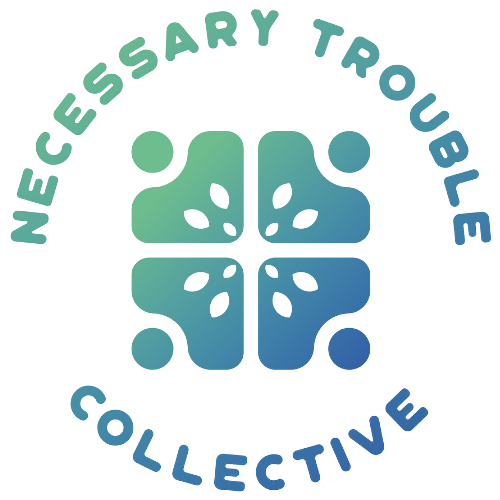Help us share the skills and practices for our collective liberation!
Necessary Trouble Collective offers many of its programs and campaigns in the Gift Economy. The Gift Economy is a radical change in our relationship to money where services are not sold, they are given freely with no fee attached. This removes the financial barrier to participation.
At the same time, we do have financial needs as an organization operating within the current economy. To address these needs, we invite all who participate in our programs to consider supporting our work by making a financial contribution. No one is required to give, and no amount is considered too small or too large.
Principles of the Gift Economy
There is no fee to participate - this ensures that there are no financial barriers, all are welcome.
Voluntary giving to pay it forward - a contribution means we can continue to offer our services to others in the future.
Giving is done in response to need - we only take what we need to sustain ourselves and our work.
Giving is in proportion to your ability to give.
Financial transparency - we provide information on our financial need so that you can be in choice about how much to give.
Faith - we are offering our work as a contribution to the world we want for all. If this work is needed, we will receive the financial support we need to continue. If our work is not needed, we don’t want to divert resources from where they are needed.
For more details on how the Gift Economy works, see the East Point Peace Academy’s description here.
Our current financial need is CAD$4,000 to provide for basic needs such as housing, food and transportation for our trainers.
Determining the amount to give is an opportunity to reflect on:
My level of wealth - Do I have enough money for all my basic needs (nutritious food, transportation, health care, emergency funds, etc.). Do I rent or own my home? Do I have money for retirement? Do I support others besides myself? Am I likely to inherit money?
The benefit I received from participation - Did I learn a lot from this offering? Has it contributed to my ability to live in greater alignment with my values? Have I participated in similar programs? And if so, what did I pay for those?
The value to me of supporting others to access this program - If more people participated in this program would it help to build the kind of world I am longing for?
